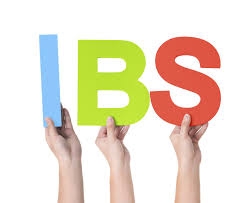Irritable bowel syndrome (IBS
Irritable bowel syndrome (IBS) is a common disorder that affects the large intestine (colon). Irritable bowel syndrome commonly causes cramping, abdominal pain, bloating, gas, diarrhea and constipation. IBS is a chronic condition that you will need to manage long term.
Even though signs and symptoms are uncomfortable, IBS — unlike ulcerative colitis and Crohn’s disease, which are forms of inflammatory bowel disease — doesn’t cause changes in bowel tissue or increase your risk of colorectal cancer.
Only a small number of people with irritable bowel syndrome have severe signs and symptoms. Some people can control their symptoms by managing diet, lifestyle and stress. Others will need medication and counseling.
Causes
It’s not known exactly what causes irritable bowel syndrome, but a variety of factors play a role. The walls of the intestines are lined with layers of muscle that contract and relax in a coordinated rhythm as they move food from your stomach through your intestinal tract to your rectum. If you have irritable bowel syndrome, the contractions may be stronger and last longer than normal, causing gas, bloating and diarrhea. Or the opposite may occur, with weak intestinal contractions slowing food passage and leading to hard, dry stools.
Abnormalities in your gastrointestinal nervous system also may play a role, causing you to experience greater than normal discomfort when your abdomen stretches from gas or stool. Poorly coordinated signals between the brain and the intestines can make your body overreact to the changes that normally occur in the digestive process. This overreaction can cause pain, diarrhea or constipation.
Triggers vary from person to person
Stimuli that don’t bother other people can trigger symptoms in people with IBS — but not all people with the condition react to the same stimuli. Common triggers include:
- The role of food allergy or intolerance in irritable bowel syndrome is not yet clearly understood, but many people have more severe symptoms when they eat certain things. A wide range of foods has been implicated — chocolate, spices, fats, fruits, beans, cabbage, cauliflower, broccoli, milk, carbonated beverages and alcohol to name a few.
- Most people with IBS find that their signs and symptoms are worse or more frequent during periods of increased stress, such as finals week or the first weeks on a new job. But while stress may aggravate symptoms, it doesn’t cause them.
- Because women are twice as likely to have IBS, researchers believe that hormonal changes play a role in this condition. Many women find that signs and symptoms are worse during or around their menstrual periods.
- Other illnesses.Sometimes another illness, such as an acute episode of infectious diarrhea (gastroenteritis) or too many bacteria in the intestines (bacterial overgrowth), can trigger IBS.
Symptoms
The signs and symptoms of irritable bowel syndrome can vary widely from person to person and often resemble those of other diseases. Among the most common are:
- Abdominal pain or cramping
- A bloated feeling
- Gas
- Diarrhea or constipation — sometimes alternating bouts of constipation and diarrhea
- Mucus in the stool
Homoeopathic Treatment
Homoeopathic medicies are best suited for the treatment of IBS, these medicines reduces the symptoms of the patient and gradually the disease gets cured.

